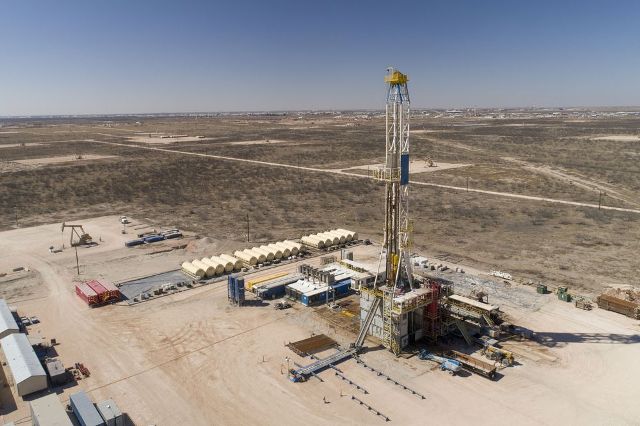Exxon Mobil and Chevron have reduced their drilling activity in Permian Basin oil field, the top U.S. shale oil field, after dominating in the high-desert landscape a year ago.
The cautious approach of the two largest U.S. oil companies is a major reason domestic oil production has been slow to rebound since prices crashed during pandemic lockdowns in 2020. Production now is about 11 million barrels per day (bpd), down sharply from the record of nearly 13 million bpd hit in late 2019, Reuters reported.
The share of drilling activity by Exxon and Chevron in the Permian Basin oil field in Texas and New Mexico dropped to less than 5 percent this month from 28 percent last spring, according to data from Rystad Energy.
“We essentially hit a pause button,” said Chevron chief financial officer Pierre Breber. “When the world was oversupplied we didn’t see the virtue in putting more capital to add barrels.”
Exxon Mobil and Chevron are unlikely to boost spending until next year, according to the companies and analysts. Chevron expects to produce around 1 million barrels daily by 2025 and Exxon 700,000 bpd by 2025, the companies said at investor days this month.
Chevron will increase Permian spending from $2 billion to pre-Covid levels of $4 billion annually over the course of the next several years, Breber said. But Chevron will not increase drilling in the Permian this year. It is running about five rigs in the Permian with two completion crews, down from just under 20 a year ago.
“Although prices are up and underlying fundamentals are strengthening and recovering, we’re not out of the woods yet,” Breber said. “So this year we’re going to stick with our budget.”
Exxon chief executive officer Darren Woods recently said the company would use additional profits to reduce debt instead of funding more drilling. Exxon had seven Permian rigs drilling at the start of March and said it expects to keep seven to 10 at work this year, down sharply from 60 at this time last year.
Both companies are likely to increase Permian spending next year, said Stewart Glickman, energy equity analyst at CFRA Research.
Five shale companies are driving the recovery through drilling: EOG, Pioneer Natural Resources, Occidental Petroleum, Devon Energy and ConocoPhillips, said Artem Abramov, analyst at Rystad Energy, who also cited activity by smaller, privately owned operators. Producers are also completing backlogs of unfinished wells.
However, output is unlikely to increase dramatically, due to the swift decline rates for shale wells.
“We would need three months of oil prices sustained at current levels followed by six months of drilling activity before production begins to climb higher on a sustained basis,” said Peter McNally at Third Bridge.
Exxon and Chevron are not the only producers keeping spending down. Many shale companies have hedged a majority of expected 2021 oil production at an average price below $45 a barrel, well below current market prices, Enverus’ Andy McConn said. The hedges reduce exposure to the recent increase in oil prices, discouraging near-term growth.

